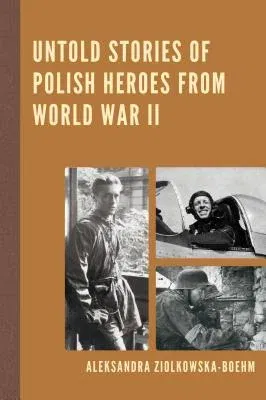A full understanding of the historical process must include studies of
the social and economic conditions of societies as well as biographies
of the people on which a clear understanding of history is based-but not
just the "great" people. Biographies of "average" individuals, who exist
in a society, have their own experiences and are acted upon by their
surrounding environments, are essential to a clear and complete
understanding of the past and its influence on the present. In this
respect, Aleksandra Ziolkowska-Boehm has made a major contribution to
furthering the understanding of World War II, and especially the part
played by Poland and Poles, with her compilation of individual
biographies of people who participated in many of its formative events.
Ziolkowska-Boehm's protagonists include a variety of people and
experiences that enhance the usefulness of the volume. There are:
Tadeusz Brzeziński, a member of the Polish diplomatic corps; the hero
who escaped the Lwów ghetto to fight in the Warsaw Uprising and later
founded a theatre group in Montréal; a pilot who escaped from the Soviet
Union to fly fighters over Great Britain; a photographer of the Warsaw
Uprising; a nurse during the Warsaw Uprising; a personal memories of the
post-war era move to the United States; a person who was forcefully
deported with her family to the Soviet Urals, later escaping to the
Middle East and eventually Mexico; the boy who, though only eight when
the war began, but survived Pawiak Prison, moved to Brazil, and became
an internationally-known poet and artist.


